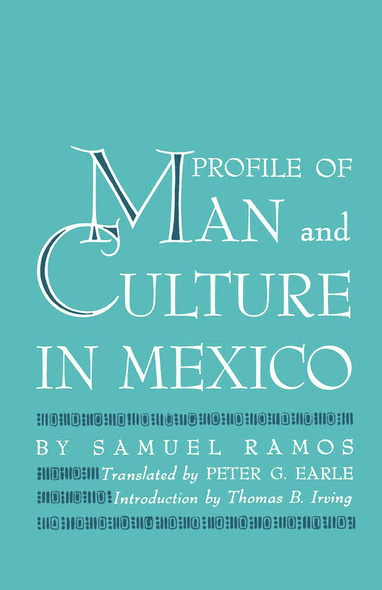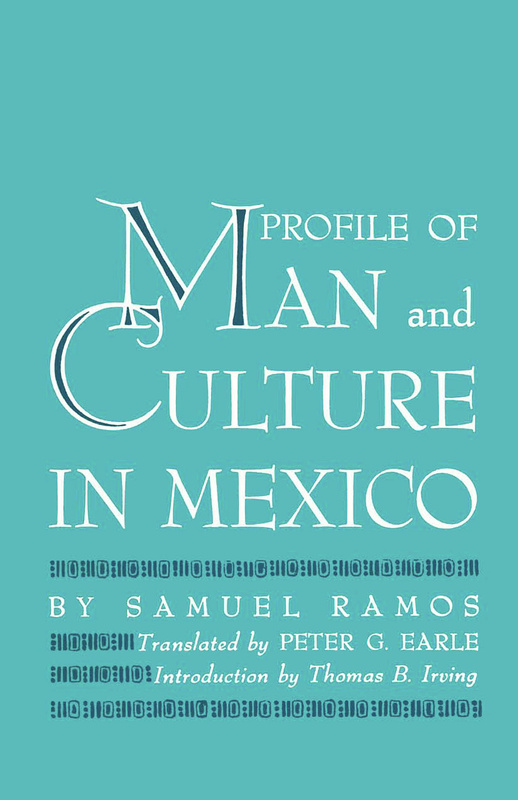Our shopping cart is currently down. To place an order, please contact our distributor, UTP Distribution, directly at utpbooks@utpress.utoronto.ca.
Profile of Man and Culture in Mexico, originally written in 1934, is addressed to the author’s compatriots, but it speaks to people, wherever they are, who are interested in enriching their own lives and in elevating the cultural level of their countries. And it speaks with a peculiar timeliness to citizens of the United States who would understand their neighbors to the south.
Samuel Ramos’s avowed purpose is to assist in the spiritual reform of Mexico by developing a theory that might explain the real character of Mexican culture. His approach is not flattering to his fellow citizens. After an analysis of the historical forces that have molded the national psychology, Ramos concludes that the Mexican sense of inferiority is the basis for most of the Mexican’s spiritual troubles and for the shortcomings of the Mexican culture.
Ramos subscribes to neither of the two major opposing schools of thought as to what norms should direct the development of Mexican culture. He agrees neither with the nationalists, who urge a deliberate search for originality and isolation from universal culture, nor with the “Europeanizers,” who advocate abandonment of the life around them and a withdrawal into the modes of foreign cultures. Ramos thinks that Mexico’s hope lies in a respect for the good in native elements and a careful selection of those foreign elements that are appropriate to Mexican life. Such a sensible choice of foreign elements will result not in imitation, but in assimilation. Combined with the nurturing of desirable native elements, it will result in an independent cultural unit, “a new branch grafted onto world culture.”
Ramos finds in Mexico no lack of intelligence or vitality: “It needs only to learn.” And he believes that the future is Mexico’s, that favorable destinies await a Mexico striving for the elevation of humanity, for the betterment of life, for the development of all the national capacities.
Samuel Ramos (1897–1959), a native of Zitácuaro, Michoacán, gave up medical and army careers to become a professor of social philosophy and aesthetic theory in the National University of Mexico.
Peter G. Earle taught Spanish at Princeton University and at Wesleyan University.
- Translator’s Preface
- Introduction
- Prologue to the Third Edition
- I. Imitation of Europe in the Nineteenth Century
- II. The Influence of France in the Nineteenth Century
- III. Psychoanalysis of the Mexican
- IV. Creole Culture
- V. The “Abandonment of Culture” in Mexico
- VI. The Profile of Mexican Culture
- VII. The Profile of Man
- VIII. Education and Inferiority Complex
- IX. Passion and Interest
- X. Utopian Youth
- XI. The Conflict of Generations
- XII. The Use of Thought
- XIII. Pedantry
- Appendix I. Justo Sierra and the Political Evolution of Mexico
- Appendix II. Concerning Mexican Character
- A Bibliography of Samuel Ramos
- Index





